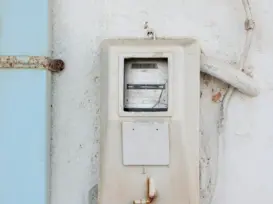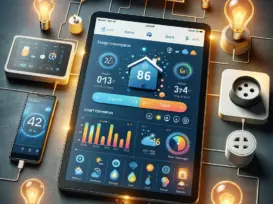Grus Home Energy - Electricity bill
Understanding Your Electricity Bill: Tips for Managing Your Energy Costs
Electricity bills can often be confusing and overwhelming, but understanding how they are calculated and what factors contribute to your total cost can help you manage your energy expenses more effectively. By gaining a better understanding of your electricity bill, you can make informed decisions about your energy usage and potentially save money in the long run.
How Your Electricity Bill is Calculated
Electricity bills are typically calculated based on several factors, including the amount of energy you use, the time of day you use it, and any additional fees or charges imposed by your utility provider. The most common method of calculating electricity bills is through a rate structure that includes a fixed charge, a usage charge, and possibly additional fees such as delivery charges or taxes.
The fixed charge on your electricity bill is a set amount that you pay each month regardless of how much energy you use. This charge covers the costs of maintaining the infrastructure needed to deliver electricity to your home, such as power lines and substations. The usage charge, on the other hand, is based on the amount of energy you consume and is typically measured in kilowatt-hours (kWh).
Additionally, some utility providers offer time-of-use pricing, which means that the cost of electricity varies depending on the time of day you use it. This can be a cost-saving opportunity for consumers who are able to shift their energy usage to off-peak hours when electricity rates are lower.
Factors That Influence Your Electricity Bill
There are several factors that can influence the amount of your electricity bill, including:
Energy Usage: The more electricity you use, the higher your bill will be. By implementing energy-saving practices, such as turning off lights and appliances when not in use, you can reduce your energy consumption and lower your monthly expenses.
Seasonal Changes: Your electricity bill may fluctuate throughout the year due to seasonal changes in energy usage. For example, your bill may be higher during the summer months when air conditioning is running constantly.
Energy Efficiency: The energy efficiency of your home and appliances can impact your electricity bill. Investing in energy-efficient appliances and making home improvements, such as adding insulation or sealing drafts, can help reduce your energy costs.
Rate Structure: The rate structure set by your utility provider can also affect your electricity bill. Understanding your rate plan and how it impacts your costs can help you make more informed decisions about your energy usage.
Tips for Managing Your Energy Costs
There are several strategies you can implement to help manage your energy costs and reduce your electricity bill:
Use Energy-Efficient Appliances: Investing in energy-efficient appliances can help lower your energy consumption and save you money in the long run.
Adjust Your Thermostat: Adjusting your thermostat a few degrees can have a significant impact on your energy costs. Consider setting your thermostat higher in the summer and lower in the winter to reduce your heating and cooling expenses.
Unplug Electronics When Not in Use: Electronics and appliances that are plugged in but not in use can still consume energy. Unplugging these devices when not in use can help lower your energy bill.
Take Advantage of Time-of-Use Pricing: If your utility provider offers time-of-use pricing, consider shifting your energy usage to off-peak hours to take advantage of lower rates.
By understanding how your electricity bill is calculated and implementing energy-saving strategies, you can better manage your energy costs and potentially save money on your monthly expenses. Taking control of your energy usage and making informed decisions about your electricity consumption can help you become a more energy-efficient consumer and reduce your environmental impact.
Blog, Energy Savings & Cost Reduction , May 17, 2024 , efficiency housing, Electricity bill, energy audit, energy conservation techniques, Energy Consumption, energy efficient home designs, energy efficient homes, energy saving tips, home automations, home energy audit, Smart Home Automation, Smart Home Energy Management, Smart Home Security Systems
©2025 All Rights Reserved. Grus IoT Co.,Ltd.

